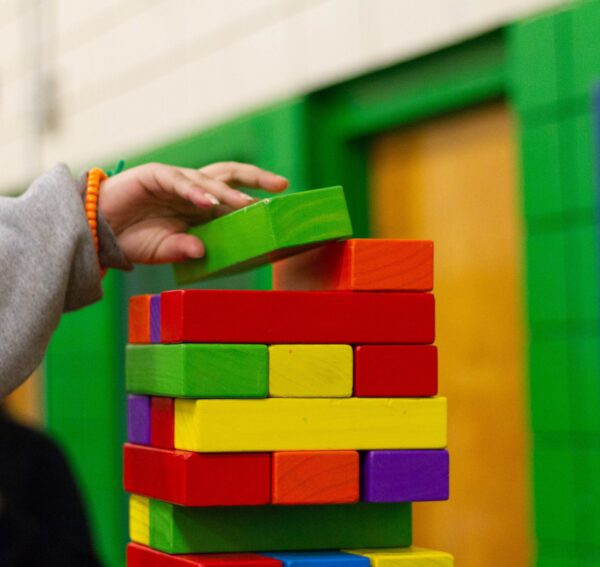Goodstart partners with Flinders Uni to strengthen developmental screening in ECEC

Goodstart Early Learning services in the Adelaide metropolitan area will have more support to detect developmental delays and other health concerns in children from low socio-economic backgrounds thanks to a partnership with Flinders University’s Health2Go clinic.
The free service is being driven by nurse practitioner and lecturer Alicia Bell and Flinders Caring Futures Institute researcher Professor Lucy Chipchase, as part of a pilot program which aims to detect potential problems in children who might otherwise wait months or years to be assessed and get support, and complements an existing paediatric nurse practitioner clinic offered through Health2Go.
“We’re often seeing children who can’t afford to go through the private sector,” Mrs Bell explained. “This means if they need to be assessed for autism, for example, they have a minimum 18-month wait.”
Students studying health qualifications at Flinders are supporting the program, offering assessments to children from birth to five years of age whom educators think could need additional supports, after gaining their parents’ consent. Students studying nutrition, dietetics, nursing and physiotherapy are working in teams to deliver the interprofessional service at the Goodstart centres.
Once an educator has identified that a child’s development may not be on track, they gain parental consent before contacting the program and seeking support. The Flinders team then step in, using a Brigance developmental screening tool to pinpoint the areas where children are delayed.
From asking standardised questions and conducting assessments which look at gross and fine motor skills, receptive and expressive language and social and emotional skills, scores for each developmental domain can be produced.
“We then assess whether we need to refer to a speech pathologist, a psychologist, an occupational therapist or if the child needs a full developmental assessment,” Mrs Bell said.
As well as supporting children, families and educators, the program gives invaluable “real world” experience to the Flinders students prior to entering the workforce.
“Moving forward, it has the potential to transform health services across South Australia,” Professor Chipchase said.
“We could see students providing a middle ground for people in the community who can’t access necessary healthcare. They can be part of the solution for people who clearly aren’t getting the help they need.”
The team is also providing children with Kudos referrals, to access early intervention funding through the NDIS. Thanks to a Nexus grant of nearly $10,000, the program is now offered through more than eight centres in the Adelaide metropolitan area.
“It also means I’ve been able to expand this service to one day a week instead of one day a fortnight,” Mrs Bell shared.
Should the pilot program be successful, it may expand to other Flinders students from different disciplines such as speech pathology, audiology and potentially optometry. Early feedback from both students and centre based educators has been “overwhelmingly positive,” she added, noting that many of the parents “value the professional input and opportunity to potentially identify problems early.”
“I think identifying children with delays in their childcare setting is a really sustainable and feasible option, because so many attend, and getting in early means these children don’t have to wait until they get to school to be diagnosed.”
For more information on the service, contact Health2Go.
Popular

Quality
Practice
Provider
Research
ECEC in focus - Una Springwood’s intergenerational initiative brings young and old together through connection and care
2025-06-30 10:00:45
by Contributed Content

Provider
Practice
Quality
Research
Aboriginal Education Strategy drives early learning and school success in South Australia
2025-07-01 09:55:12
by Fiona Alston

Workforce
Policy
Quality
Research
Inclusive Practice Framework set to strengthen inclusion in early childhood settings
2025-06-24 11:37:00
by Isabella Southwell












